After two series of courses on Angular.Js in CodeSchool, I’m quite stressed now. I think I totally fucked up the second one.
For the first one, basic things, easy to grab and the interactive way of showing the view right after my modification on code helps a lot. But then came the second one,’Staying Sharp with Angular.js’, emmm, hard.
Now, I’ll try to review what I got from the courses, in a unordered list.
-
Directive, HTML annotation which triggers JS behaviors
-
AngularJS, client-side JS Framework for adding interactivity to HTML.
-
Module, where to write angular application.
-
define a js file with module, include it in HTML with , and use it in the html tag like <html ng-app="app-name">
-
expression, to get value of var in html
-
Controller, where to define app’s behavior by defining functions and values. app.controller(“CtrlName”,function(){}); , In HTML, ng-controller tag, <div ng-controller="CtrlName as alias">
-
BuiltIn directive, say: ng-show, ng-hide, ng-if, ng-repeat, ng-resouce(for resource display with expression in), ng-click (could use value or funtion in ) and 2-way data Binding, ng-init=”var = value” to initialize the var, ng-class as
, ng-model binds form element value to property, ng-submit call a function then form is submit, *novalidate* to turn off HTML validation & *required* to choose which field is required ( us <ng-submit="form.$valid && functionToDealData()"> ), ng-href to do the href thingy in angular, directive set replace as true will set the outermost tag for element to be null
-
Filters, ,say, date, currency, upper/lowercase,etc and a special filter filter, like }}, if we want to search across all the scope not just some fields, use dollar sign $
-
Dependency, like libraries in other languages. Reference the dependent lib with a blanket([]) and inject it inside the function. Like, angular.module(“mName”).controller(“thisController”,[‘ngSth’,function(ngSth,xx){ //functionhere }]); Now I got $http and ngRoute libs, $http for http requests, and ngRoute for routing around.
-
Route, using ngRoute, two specific function here, when and otherwise,
angular.module(‘myModule’,[‘ngRoute’]).config(function($routeProvider){ $routeProvider.when(“/”,{templateUrl:”/way/to/url.html”}); $routeProvider.otherwise({redirectTo:”/redirect/url”})}; });
Four steps to route with Angular
- Using ng-view in html to set the href
- Loading ngRoute lib src in html file like
- Import ngRoute Module
- Define route for specific route.
-
$scope thiny, which helps to get rid of the alias, No more alias in html and no more in Directive, scope:{} in directive helps to define an isolate scope.It’s a flexible way to access data
-
Link, a great way to manipulate the DOM, it takes a function
link:function(scope,element,attrs){ };
-
Services, Factory and Provider, define reusable functions throughout the application.
-
Controller/Link when to use, controller is for you when the function inside are shared with other directives, and remember to use ‘require’ field.
Some Practice Thingy Learnt:
- Inject the dependency in your module js file, and dont do it else. As everytime you do it elsewhere, it’s gonna overwrite the injections
